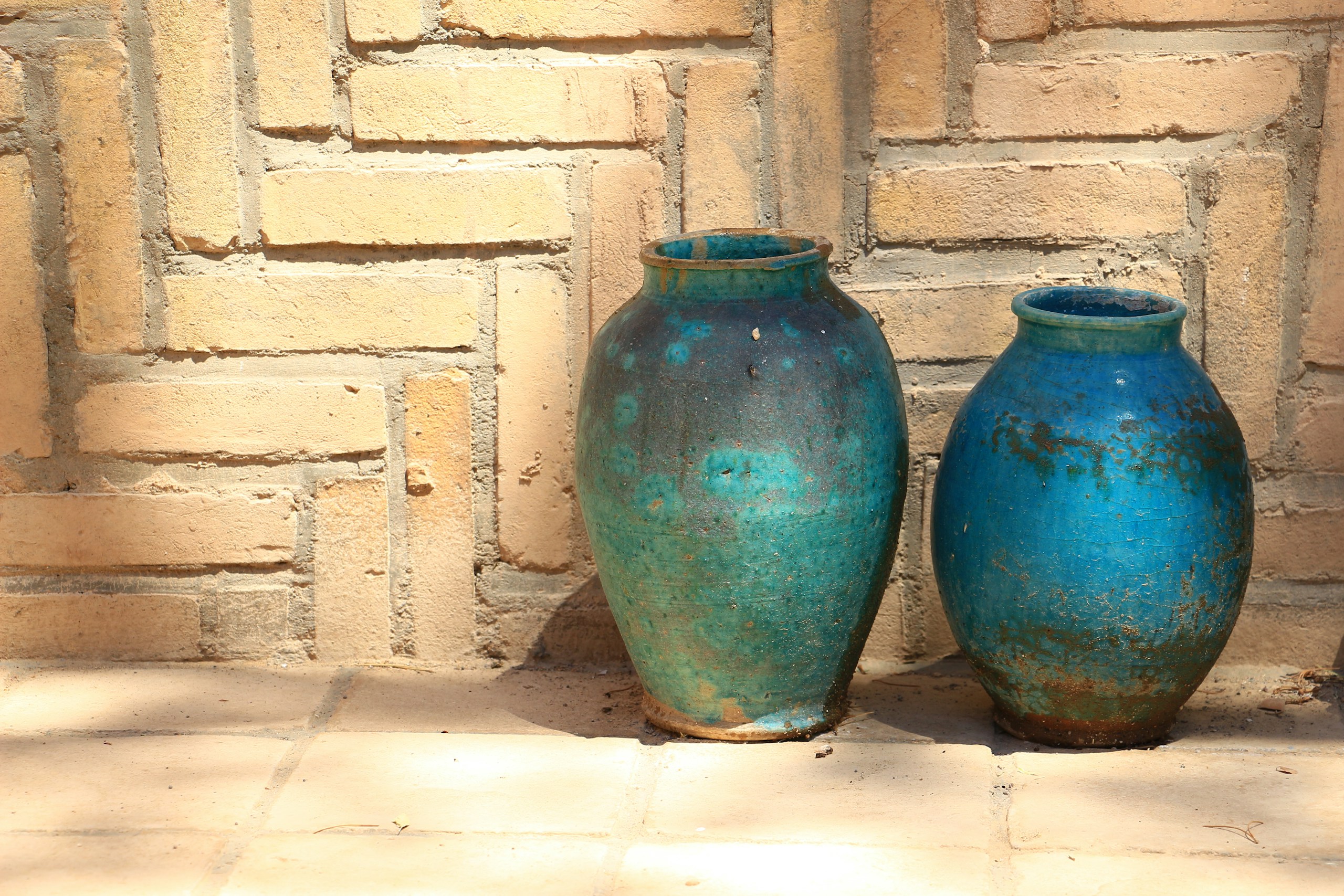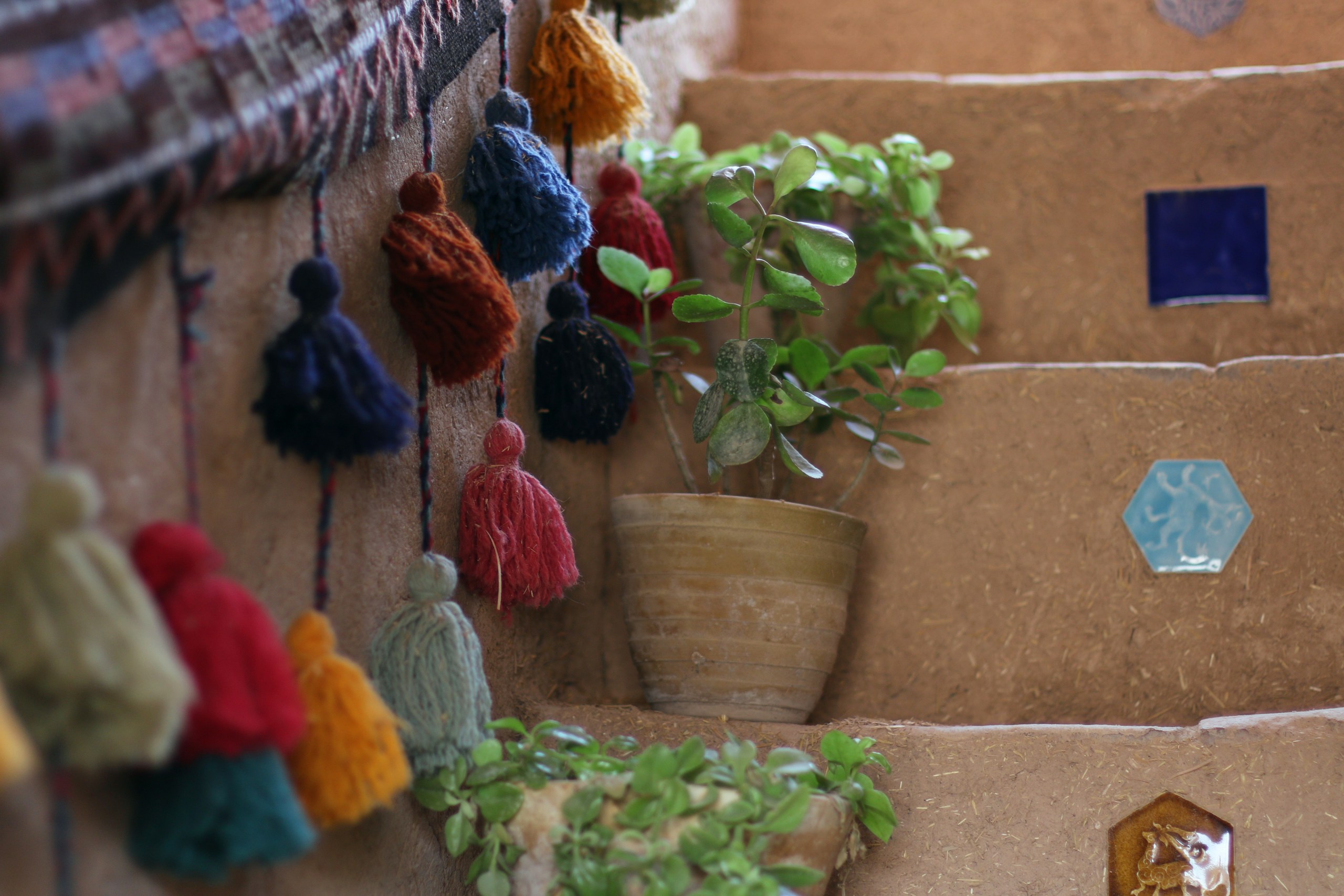A confession: This file has been in my drafts folder for upwards of a year. It seems that every time I come to write or edit it, I go down such a deep rabbit hole of examples, exceptions, context, tone, stress, etc. that I throw my hands up in the air, too flustered and frustrated to continue. When my hands land again, they somehow (through no control of my own) hit “command Q.” And I go on with my day.
After posting the second part of 10 Persian Words With Unsatisfactory English Translations last week, I got a message from a lovely reader who asked, “How would you translate digeh?” And that, my friends, was the exact sign/motivation/inspiration I needed to sit down and finish this post once and for all. So thank you.
In undergrad, my German textbook had a section in each chapter called “Sprachnotiz” where there were explanations for certain words. Modal particles like “mal,” “doch,” “ja,” and “gar” that don’t have a meaning, per se, but you just kind of use them peppered in your speaking to emphasize or express some kind of emotion. In Chile, it was always “po.” Persian has these particles, too.
So here we go with three of these Persian particles that Iranians use ALL. THE. TIME. when speaking. And by using them, you can make your Persian sound more natural and fluent, too!
*While I’ve done my best both to make these as clear as possible and cover most contexts, I’m sure there are some holes somewhere, so forgive me. And if there’s anything I’ve missed, I always welcome comments.*

Digeh
Let’s go ahead and start with our particle digeh, or more properly digar, which has become digeh (or dige) in spoken Persian. This one has many meanings and uses, a few of which you may already be familiar with. Digeh can mean:
Another (in the sense of an alternative)
Ye ruz-e digeh (another day)
Raftam ye jâ-ye digeh. (I went to another [different] place.)
More/Further
Dotâ ketâb-e digeh ham kharidam. (I bought two more books.)
Digeh chi mikhâi? (What else [more] do you want?)
No longer/anymore (with a negative verb)
Digeh nemikhâm bebinamet. (I don’t want to see you anymore).
Digeh nemikhâm. Sir shodam. (I don’t want anymore. I’m full.)
Already
This use is for emphasis similar to the English “already.” So there’s a sense of urgency and annoyance attached to it (well, depending on your tone anyway). As in:
Begu digeh! (Say it already!)
Berim digeh! (Let’s go already!)
Vel kon digeh! (Let it go already!)
Boro digeh! (Go already!)
Basse digeh! (Enough already!)

Emphasis
But the digeh I get asked about most frequently is the following. A far more ambiguous one used for, yet again, emphasis. Remove it, and nothing happens to the phrase. It’s still grammatically correct. But it loses the speaker’s emphasis, tone, and emotion.
Texts between my sister and I that are entirely in English are brimming with this one lonely Persian word, digeh. And it probably ranks among the top 3 most commonly asked questions from my Iranian students: How do you say digeh in English? My answer? It has no translation.
In my opinion, the best way to understand how to use it in Persian is by input flooding, which is just fancy ELT (English Language Teaching) terminology to mean “giving tons of examples of the target structure.” So that’s what I’ll try to do here.
Na digeh. (No, [forget about it].) or (Nah.)
Person A: Why did you do that?
Person B: Khob digeh. (Well [just ‘cause / I don’t want to give you a direct answer]…)
Haminjâ berim digeh. (Let’s [just] go here [it’s good enough.]
In digeh kheyli ajib bud. (This was [just] too weird.)
Bâyad anjâm bedi digeh. (You have to do it [you have no choice.])
(A few texts between my sister and I- and yes, I actually searched “digeh” and found these:)
It’s from 2003 digeh! [for crying out loud]
People behind me on the train keep discussing which Trump protest to go to. Digeh [Whatever/what can I say], it’s the new thing.
(While discussing an episode of “Big Little Lies”) That was too confrontational digeh! [Come on!/Give me a break!]
Digeh [Well/What can I say/I mean], it’s subjective.
It’s why I’ll never do dark wood but digeh [I mean] a dog’s nails will do a number on them!
(While discussing the movie “Parasite”) When that family decided to get drunk and eat in the house, digeh [I mean], I knew they were asking for trouble.
And sometimes, when all is said and done, it’s used alone as a final conclusion… as in, “Digeh…,” [*sigh* / what are you going to do / you have to deal with it / I have nothing left to say].
My little niece and nephew speak just a bit of Persian, but during their first trip to Iran they stepped up their game. One day, my nephew asked what we were having for breakfast, and my niece turned around and said, “Noon digeh!” (Bread, [obviously/what else!?]) I have to say that I was incredibly impressed by that remark which was 100% picked up on location. Must have been the input flooding.

Ke
The Persian particle ke is used as a relative pronoun (“that”, “which”, “who”, etc.) to start clauses, and in reduplication, but of course, the use I’m talking about is something else.
Emphasis
Firstly, ke can be used for emphasis, and what it emphasizes depends on where it’s placed. Take these examples:
Man ke dust dâram beram. (I [for one] would like to go.)
Ketâb-o ke barâsh âvordam. (I brought him/her the book.) [as opposed to another object]
Ketâb-o barâsh âvordam ke. (I DID bring him/her the book.)
Tag questions
Using ke in a question with a negative verb makes it function like a tag question, as in:
Vegetarian ke nisti? (You’re not vegetarian, are you?)
Here’s my major issue with this form:
You might have read this post where I mention that Iranians ask questions in the negative, and this poses problems for me because then I feel like they expect a certain answer. Like the time my mom innocently asked me, “You don’t want your tadig?”, and I was torn because I was saving the best part of the meal for last, but at the same time, how could I say no to my mom?
But then adding ke to the negative verb makes it worse because it transforms it into a leading question (which, in turn, ends up sounding like insincere taarof). One time, a taxi driver had the A/C on and asked me, “Sardetun ke nist?” (You aren’t cold, are you?) At TEDx Tehran, a lady asked me “Jâye kasi ke nist?” (This isn’t anyone’s seat, is it?) Another time at a hotel, my cousin got up to get something from the breakfast buffet and turned to us and asked, “Chizi ke nemikhâin?” (You guys don’t want anything, do you?) I laughed and said, “If we did, would you bring it for us?” And that little comment of mine sparked a 30-minute discussion about phrasing questions in Persian vs English, how it comes off, and how sincere it is, all thanks to that itty bitty particle ke (and the negative verb).
Think about it. In English, you’d most likely ask, “Do you guys want anything?” or “Is anyone sitting here?”, giving the other person the opportunity to reply either “yes” or “no”. And even though I know that the Persian phrasing of the question is actually polite (and not leading), interpreting it through my English/American filter results in a major language/culture error.
The conversation with my cousins eventually ended at the breakfast table, but the topic lingered in the back of our minds throughout the rest of the trip. Any time one of us asked a question in the negative and used ke, we had to laugh. To this day, my cousin still swears that his offer was genuine.

Hâ
Again, I’m not talking about the plural marker, but something else entirely. Hâ has no meaning on its own and is more of a sound we attach at the end of a sentence for- you guessed it- some sort of emphasis/emotional expression. In some situations, especially where imperatives are used, it has more of a consequence, similar to the English “you’d better [not].” Again, input flooding does wonders as there’s a world of meaning contained in this two-letter, one syllable sound. And more often than not, you don’t even hear the initial “h”, so it sounds like “âh”. Once you’re aware of it, though, you’ll start hearing it absolutely everywhere.
Here are some examples:
Havâset bâshe hâ! ([You’d better] pay attention!)
Gomesh nakoni hâ! ([You’d better] not lose it!)
When a friend told me she wanted to get a nose job, I exclaimed, “Nakoni hâ!” (Don’t! [You’d better not!])
Be kasi nagi hâ! ([You’d better not] tell anyone!)
In kheyli tamrin mikhâd hâ! (This needs a lot of practice! [I’m telling you!/I’m just sayin’!])
Natarsi hâ! (Don’t be afraid! [It’s nothing!])
Dust nadâre hâ! (He doesn’t like that! [I’m telling you!])
Fardâ tavalodeshe hâ! (Tomorrow’s his birthday! [I’m telling you/Don’t forget!])
One of my students once gifted me one of her paintings which I thought was beautiful. Another student looked at it uninterested. “Kâri nadâre hâ!” (There’s nothing to it [don’t be so impressed/even I could do it, just sayin’.])
Another time, I got in a taxi, and one passenger taarof-ed a fellow passenger to get in first, but she said, “Man zudtar piyâde misham hâ,” (I’m getting out earlier [just so you know, so you might as well get in first]).
This post was already in the back of my mind when I was rewatching the movie Abad o Yek Ruz (Life and A Day). I noticed this hâ was featured prominently in their dialogue. One of the characters says, “Tu otâghesh pip dâreh hâ!” (He has a pipe in his room [I’m telling you!/You’d better listen.]) Elsewhere in the film, another character says, “Khodetam nemizâram tanhâ zendegi koni hâ” (I won’t let you live alone either [better keep that in mind/I’m warning you]). You’ll notice the sense of consequence involved in both of these examples.

Subtle differences between ke and digeh and hâ
Let’s take a simple example to demonstrate the subtle differences in the meaning of these three particles. Our example will be: Goftam (I said it.)
Goftam digeh! (I said it [and I’m not going to say it again.])
Goftam ke! (I DID say it!)
Goftam hâ! (I told you so!)
Again, I cannot emphasize enough how much tone, stress, and context make a difference that may slightly alter the meaning/emotion behind these particles. And while I don’t claim that this post is exhaustive, I do hope that it has given you a bit more insight, maybe cleared some things up, or at the very least, simply increased your awareness of these little particles which are oh-so commonly used. As I stated above, hearing them enough will definitely help you feel more confident to use them properly. That’s how it is for me anyway when learning a language. And then one day, completely out of the blue, it’ll just slip out. You’ll say, “Sí, po!” when speaking with your Chilean host family over “once” (Chilean “tea time”). Or “Ich habe gar keine Taschen,” (I don’t have any pockets.) when the security guy at Berlin Tegel (RIP) tells you to empty your pockets before going through the metal detector. It’s been acquired! And you can feel damn proud of yourself.
Share it on Pinterest






Jackie
22 December 2020 at 23:52Great stuff Pontia. Have to learn these. I have to think of the “already!” equivalent in Britsh English, as we don’t use it in this way. May be “then”. e.g. Say it then. Let’s go then. Just leave it. Go on then. That’s quite enough! Thoughts? (Our usage: I’ve already read that book”)
Pontia
23 December 2020 at 14:47Thanks, Jackie! Glad you enjoyed it. Interesting that you don’t use “already” like this in British English. I never realized that.
Jasmin
23 December 2020 at 11:27Thank you Pontia! Even though I don’t speak Farsi anymore, I understand all these phrases instinctively. It’s nice that something has “stuck” from childhood! And now you motivated me even more…When teaching German as a Foreign language I usually avoid these kind of particles (at least on intermediate level). Just too confusing. Plans for 2021: introduce them to some “input flooding” and let them know that the real fun of language learning begins beyond grammar books.
Pontia
23 December 2020 at 14:52Hi Jasmin! If you instinctively remember these, then honestly I would say the hard part is done, haha! The rest is just grammar with rules, so no problem. I agree these particles can be confusing. I had some of the German ones during my first semester as an absolute beginner, and I couldn’t get it at all. It was only after studying in Berlin that I sort of got the hang of it. I think input flooding is the way to go in your classes next year 🙂 The fun of language learning begins beyond the grammar books indeed!
Soheila Mansouri-Seresht
26 December 2020 at 22:44salam pantea jun,
tabrik migam azizam, kheili khosh hal shodam az axhaye besiar zibai ke az noghate mokhtalefe irane azizemun gerefti wa hamitor alaghei ke be asare honari iran dari.man be sahme khodam be to eftekhar mikonam. rasti man yeki az dustan samimie soheila jun hastam ,khodam ham dar alman zendegi mikonam.emshab az sayte to ba khabar shodam wa az in be baad donbal mikonam. barat arezuye mowafaghiat daram.
Pontia
28 December 2020 at 15:25Salam Soheila joon, mamnun az payametun. Kheyli khoshhal shodam. Shoma vaghean loft darid. Kheyli mamnun ke mikhunid va donbal mikonid. <3